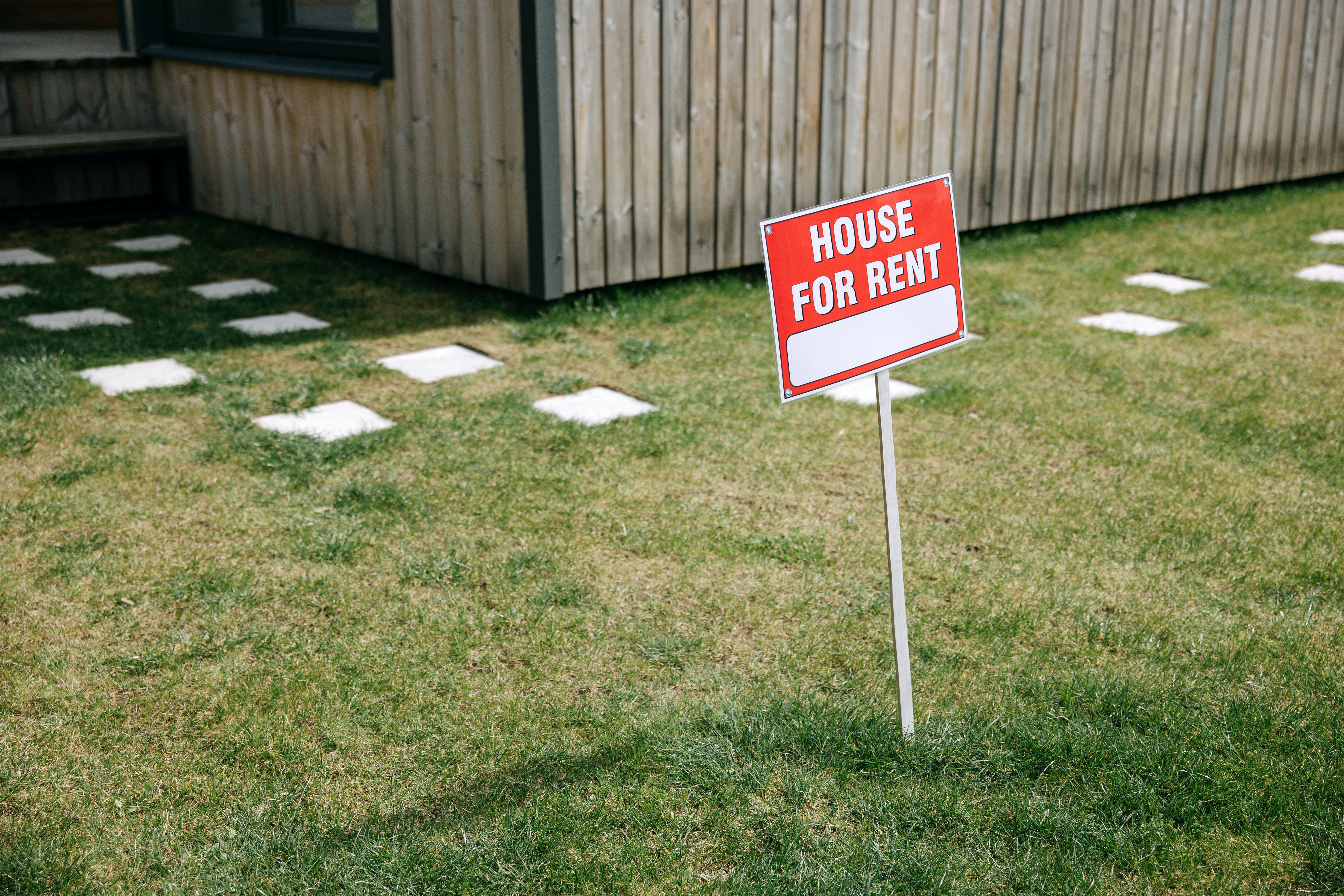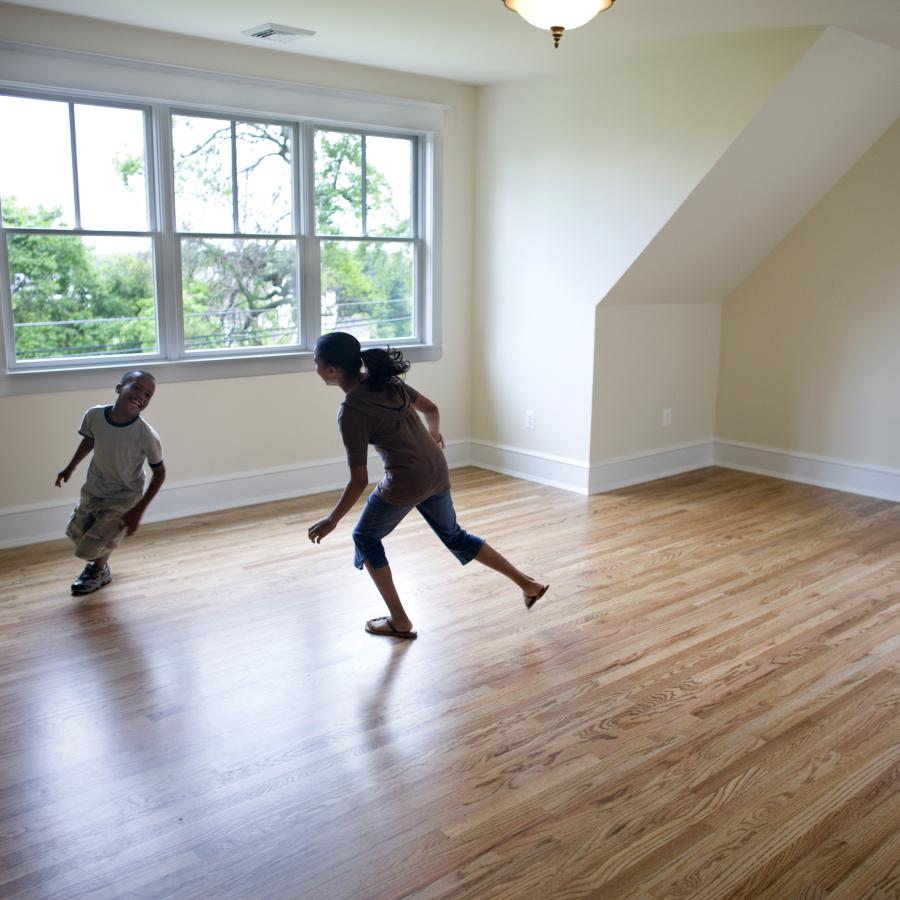DESCRIPTION
gradientRental Registries

A rental registry is a database of rental properties that includes detailed information about the property owner and the rental property. Rental registries, in their most basic form, regularly require property owners to provide up-to-date contact information of key individuals involved with the management and maintenance of the property, including a designated emergency contact who can be contacted 24 hours a day. Property owners may also be required to provide information and documentation regarding their last property inspection, the number of units owned, the size of the units, the occupation status or vacancy rate of those units, deferred maintenance concerns, and how much has been and is currently being charged for rent. Additional information can be collected by localities to gather important data needed to address a community’s unique housing challenges and inequities, such as a property’s connections to water and electricity, or monthly utility costs.
Despite the presence of 42.5 million renter households nationwide, there is a glaring lack of timely data available on rental housing conditions and tenant experiences. This information gap on rental properties fosters a housing market of minimal oversight and can create conditions for deferred maintenance and tenant mistreatment that can severely affect the mental, physical and financial well-being of renters. The lack of transparency, combined with the overall scarcity of homes affordable to low-income renters in most communities, creates a housing market in which property owners have excessive power over predominantly low-income, Black and Brown renters with very few alternative affordable housing options.
During the Covid-19 pandemic, the demand for rental registries surged. Localities quickly recognized that they lacked the necessary infrastructure to deliver targeted emergency rental assistance needed by the 3.6 million renters at risk of an eviction. Similarly, the increase in climate-change induced disasters and severe weather events have underscored the need for rental registries to coordinate emergency rescue services, assess property damage, and deliver post-disaster relief. Persistent concerns about rising rents paired with rising inflation has also elevated national interest in improving supervision and monitoring of the rental market.
In addition to helping distribute social services and improve oversight, a rental registry can provide a host of benefits for a city or state, such as:
- inform housing and community development policies
- help regulate a rental market through policy intervention
- identify households at risk of displacement (rent hikes or evictions)
- identify and address community health and safety concerns
- help facilitate community outreach
- complement other surveys happening at the household level through coordinated efforts
- support social support services in and out of times of crisis
- be a critical organizing tool for tenants
- provide transparency on the rental ownership landscape
- help target community acquisition efforts
- monitor and mitigate growing speculative practices
- enforce and track implementation of existing and future tenant protections
See ChangeLab Solutions, the National League of Cities, the Shimberg Center for Affordable Housing, and the Center for Community Progress for additional resources on rental registries.
- Government Staff, State Departments of Housing, Departments of Health, Division of Code Enforcements, and Emergency Management Offices can work together to design a rental registry and decide on the type of information that should be collected in consideration of the the data needed to fulfill each of their departmental goals.
- Local business licensing departments can offer advice and information on the ways a rental registry can accurately capture the ownership information of different types of property owners (i.e. large corporate owners, small owners, out of town and local owners).
- Elected and appointed officials can design and advance rental registry policies and the necessary enforcement mechanisms to support a smooth and effective implementation process.
- Tenants and tenant organizers provide the critical contextual information needed to create a transparent, safe, and healthy rental market, and mobilize community members around issues seen in their rental housing market.
- Rent boards can help implement rental registries and leverage the information gathered from them to pursue or monitor policy interventions. Rent boards can include the data gathered from registries into annual reports that educate the public on the status of achieving specific policy goals, such as the level of compliance with a rent stabilization ordinance.
- Local housing advocates and nonprofits in partnership with a government department can collaborate on education and outreach plans for landlords to register their properties and on special programs available for property rehabilitation and retrofits.
- Code enforcement offices can provide information on types of properties that should be prioritized due to local conditions of rental properties and prevalent habitability concerns.
- Data scientists and data engineers can create the internal technical infrastructure needed to manage, use, and maintain a large information system; they can also ensure that access to this database can serve the goals or service delivery systems of various government departments.
- Academic researchers can evaluate rental registry policies and programs to ensure they are working effectively and as designed, and as utilize data gathered from the registry to create reports and analyses on local housing market conditions.
- Coverage: Rental property registrations must aim to include all residential rental units to ensure the registry captures complete and accurate information on as many dwelling units as possible.
- Outreach and education: Research of existing rental registries has illustrated higher participation among larger rental properties (over 50 units) than smaller properties with 1-2 rental units. This gap suggests that if cities want more complete coverage, they need to invest in outreach and education to landlords, especially smaller ones, on the requirements and benefits of a local rental registry.
- Community priorities: Localities must align their goals for a rental registry with the housing issues that community members identify. For example, if a community is concerned with increasing real estate speculation, a city can establish a rental registry that requires detailed information on ownership to understand changing rental ownership patterns and propose policies to mitigate this growing problem. Additionally, rental registries, such as those based in Minneapolis, MN and Buffalo, NY, can help a city identify and contact problem property owners who have neglected maintenance in their units, and either provide maintenance support or revoke a landlord’s ability to lease the unit. Other cities, like Philadelphia, have expressed concerns with expiring subsidies affecting the city’s affordable housing stock and passed a policy to create a registry to track which subsidized properties are being released to the speculative market to inform preservation efforts.
- Clear information gathered: As rental housing becomes more corporatized, it is increasingly common for properties to be owned by limited liability corporations (LLCs) who often use a third party company for property management. This setup can make it difficult for tenants to understand who is actually responsible for maintenance and other day to day management. Requiring owners to provide contact information for key individuals of the LLC, a locally-based emergency contact, and to keep this information regularly updated is vital for ensuring quick, clear lines of communication. Having this contact information is especially critical in cases of natural disasters or other emergencies where officials need information on a property’s current occupancy to streamline timely recovery and relief efforts.
- Complementary policies: Many jurisdictions have implemented rental registries as tools to enforce rent stabilization laws or to track compliance with just cause eviction policies. For example, San Jose, CA utilizes their rental registry program to track and evaluate permissible rent increases in accordance with their rent stabilization ordinance. Localities can also coordinate licensing and registration together to evaluate and enforce adherence to local and state health and safety housing codes, as seen in Minneapolis, MN. Depending on a community’s unique needs and housing challenges, registries can work hand-in-hand with anti-displacement policies like rent stabilization, just cause eviction protections, and tenant opportunity to purchase (TOPA/COPA) to strengthen housing stability.
- Compliance incentives: Generally, rental registries are more effective and are utilized more often by city officials and landlords if they are mandated by an ordinance and have clear enforcement mechanisms. Some cities require landlords to register their properties by tying rental registrations to existing license requirements, mandatory inspections, or even the legal ability to file for an eviction. Other incentives that encourage regular use of a registry will depend on local needs, but building in clear compliance triggers makes the system more effective for both enforcement and landlord participation.
- Long-term maintenance: Keeping a rental registry accurate and useful over time requires a modest but consistent investment. In many cases, a rental registry can be designed to be revenue-neutral. For example, if jurisdictions pair rental registrations with inspections, more funding may be necessary to staff those inspections. Localities have leveraged or minimally increased existing licensing and registration fees to meet these funding needs that range typically from $10 to $100 per unit. It is important, however, to ensure that long-term database maintenance is a priority so that the information collected continues to be useful and is not left unutilized.
- Caution for information made publicly available: Jurisdictions need to strike a balance to maintain confidentiality of information submitted to the registry while still providing enough information for the public to understand their local rental housing market. Clear and thorough data safety and privacy protocols must be established to ensure the protection of personally identifiable information. Further, the design, development and maintenance of the rental registry should include regular input from community members to prevent unintended consequences or misuse of the data.
- Educational materials and products: Rental registry managers should plan early for how the data will be shared – whether through a public-facing database, annual reports, or other tools. Educational materials can help explain how the rental registry is used to monitor things such as expiring housing subsidies and what follow-up actions are triggered by public agencies. Minneapolis provides scoring tiers for landlords to show the public which properties meet or fall short of local habitability standards, helping renters make informed decisions and encouraging better compliance.
Various communities across the country – both big and small cities – have aimed to close their local rental market information gap by creating rental registries, and many more are starting to establish these databases to understand the forces driving their current housing market inequities. In the past few years, over five jurisdictions have established a rental registry, including, but not limited to Antioch, CA, Springfield, Illinois, and Louisville, KY. Places where rental registries are already working include:
- For over 10 years, the city of Minneapolis has maintained a robust rental licensing process that requires all rental properties not occupied by the property owner to have an active license and register their property with the Department of Regulatory Services in order to be occupied. The city requires that property owners submit information such as their name, business or resident address, telephone number, and information of business partners, and individuals involved with partnering corporations and limited liability companies. Specifically, the license requires that at least one natural person living within 60 miles of Minneapolis has to be listed on the license and posted on the property. As a part of the rental licensing and registration process, rental properties are inspected and given a tier level that communicates the conditions and habitability of the property that is tied to their registration. All of the data collected is then made publicly available in an online map that allows community members to understand their local rental market, the conditions of existing housing stock and the individuals to hold accountable. Finally, Minneapolis property owners are charged a rental license fee that is dependent on the number of units owned and the resulting tier of the property after inspections. Overall, Minneapolis’ rental licensing and registration has been able to capture information on over 90% of the city’s rental properties and, even during the height of the pandemic, supported the enforcement of dwelling codes to ensure resident safety and health. Their proactive inspection program, according to some government officials, helps them keep their eye on the local housing stock and monitor that residents are living in safe and dignified conditions or deploy the appropriate enforcement tools to address property issues. The success of Minneapolis’ rental licensing process and the minimal tolerance the city holds for neglectful property owners has been viewed as a model from other cities across the country, such as Baltimore, Maryland, to address substandard housing conditions. Minneapolis government departments note that this licensing program has also been helpful to educate and communicate with landlords important updates like new code changes that are in effect as the city passes more and stronger tenant protections. This was an especially useful information tool for housing liaisons to connect landlords to emergency rental assistance programs during the Covid-19 pandemic.
- In Concord, CA, the Residential Rent Registry Program was approved and established in 2021 under the city’s Residential Tenant Protection Program Ordinance. The program aims to support the city’s future housing policy decisions and in response to concerns from tenants and advocate groups, such as the East Bay Alliance for a Sustainable Economy (EBASE), Monument Impact and East Bay Housing Organizations, regarding rising evictions and extreme rent hikes. Concord’s rental registration program mandated that property owners of buildings with more than four units provide information regarding evictions, the square footage of the unit and rent costs. Less than a year later, the city was able to register 73 percent of the jurisdiction’s property owners. They have used the data to produce a preliminary analysis of the characteristics of rental properties in the city and found that the average rent is $1,716.90 and that most lease terminations were initiated by an owner due to nonpayment of rent. Additionally, rental registry data gathered helped tenant leaders and advocates make the case for and pass rent stabilization and strengthened just cause eviction protections in 2024. Continued evaluations of the rent registry program will enable the city of Concord to monitor fair housing or rent related issues.
- Portland, OR’s Residential Rental Registration Program was first created in 2018 in an effort to strengthen tenant protections and understand the rental housing stock in the city. This rental registration program requires all rental properties in the city to be registered annually and charges a $60 fee for the registration of market-rate rentals, but waives the fee for affordable units. In addition to the costs of maintaining the registry, registration fees go towards supporting a hotline that provides various support for tenants experiencing an eviction, fair housing challenges, and substandard housing conditions to name a few. Overall, Portland’s rental registration program has been successful in registering more than 75% of the city’s property owners.
- After originally having established their program in 2007 to guarantee the safety and adequate conditions of one and two-family non-owner occupied rental units, the city of Syracuse, NY noticed many units were not registered. In an attempt to increase property owner’s compliance with the rental registration program, improve the city’s housing stock quality, and improve tenant protections, the city of Syracuse passed legislation in 2020 to prevent the initiation of formal eviction proceedings for nonpayment of rent for landlords who have not registered their rental properties. Information gathered by the registry is displayed onto several publicly-available maps. While the current rental registry has not yet met its target registration goals, studies around the inspection process have found a 20 percent decrease in code violations.
- Starting in 2004, Buffalo, NY began its rental registration code in an attempt to identify property owners who were absent or managed properties with significant problems. An evaluation of Buffalo’s rental registration code found that this intervention’s ability to directly contact property owners led to a successful reduction in the frequency of absentee landlords. Ultimately, the increased communication with landlords helped the city to hold absentee property owners accountable to safe and habitable living conditions for tenants.
- In an attempt to improve the health and safety of Louisville, Kentucky residents, the Metro Council passed a rental registry ordinance in 2022 and was launched in early 2023. During the initial roll-out of the ordinance, the software utilized by the Louisville Department of Codes & Regulations proved to be too complex for landlords to navigate and register their properties. In response, the city explored new options for registering and publicly displaying registrations. According to city officials, the software change has proven to be a success and has, most importantly, eased government officials’ ability to contact property owners should issues arise at their constituents’ rentals. Prior to the registry, government officials noted how challenging it was to contact property owners, which frequently resulted in substandard living conditions for tenants.
In 2021, after experiencing challenges enforcing Covid-19 era emergency housing policies, city officials in Denver, Colorado were motivated to pass a rental registry and licensing system known as the Residential Rental License Program. This system both registers and requires safety checks to ensure that a landlord’s property is meeting habitable standards. In order to obtain their rental license, property owners must pay an application fee that ranges from $50-$500 – depending on the size of the building – and have a third-party inspector attest that the building meets pre-established safety guidelines. After initial implementation challenges, some government departments in Denver quickly met the need for more qualified inspectors and created a more seamless process for engaging in the program. While the program has not yet reached its initial licensing goals, experts are confident that it will continue to become more efficient, improve public health outcomes, and provide more data on the Denver rental market.
 Resources, by Type
Resources, by Type 



